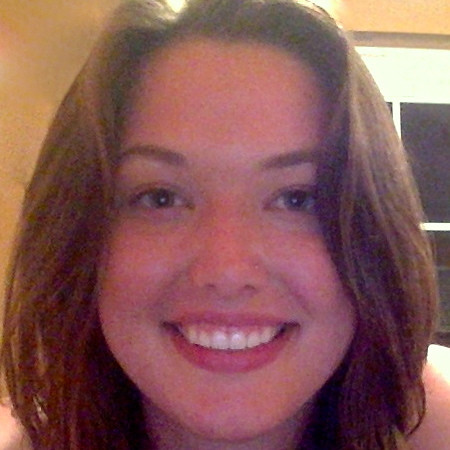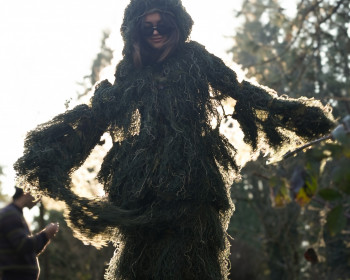Intern Profile: Hannah Sima Rempel ’16
Meet Hannah Sima Rempel ’16, a biology major and intern at University of Puerto Rico’s Caribbean Primate Research Center.
Open gallery

Hannah Sima Rempel ’16
Major: Biology
Hometown: Seattle, Washington
Can you tell us what you’re doing this summer? What are your basic duties as an intern?
I am working for Carla Escarbi at the University of Puerto Rico’s Caribbean Primate Research Center on Cayo Santiago. Cayo Santiago is a small island located about 1 km off the eastern coast of Puerto Rico. It is home to approximately 2,300 free-ranging rhesus macaques. The colony was established in 1938 with macaques from the mountains near Lucknow, India. Since then it has been one of the leading field sites for macaque research, leading to significant advancements in our understanding of nonhuman primate social dynamics, development, communication, and physiology.
On Cayo, I am assisting Escarbi in her research on the effect of gastrointestinal parasites on dominance ranking in male macaques. Along with my fellow student researcher, Bridgette Troche, a biology and anthropology major at the University of Puerto Rico, I collect behavioral data from our focal males in 30 minute “follows.” We record point behaviors (instantaneous or ad lib data) and state behaviors (time duration of different states such as eating, resting, etc.). In August, we will use this data to create a dominance matrix of all the males and females across the four troops we work with. We also collect fecal samples from our focal males which are analyzed for parasites. Samples from each focal will be cross-referenced for parasite abundance and diversity respective to the ranking of the monkey in the dominance hierarchy. This is certainly not glamorous work, and at times it is dangerous, but I cannot imagine a better first experience in field research. The work is simply fascinating—yes, even sample collection!—and I am constantly gaining new insight on the lives of my monkeys.
How has Lewis & Clark supported you in the process of finding, securing, and funding your internship?
I am extremely grateful to Lewis & Clark and the Miller Summer Internship Award for making this research possible. First and foremost, I want to give a heartfelt thanks to Professor of Biology Kellar Autumn for his countless hours of both advice and support, which were invaluable in both finding an internship specific to my areas of interest and in securing that internship. He is simply one of the influential professors I have had the pleasure to work with. The biology department as a whole has been so supportive, both in my education as a student and in my work as a teaching assistant for 100-level biology labs. Assistant Director Nina Olken in the Career Development Center helped me polish both my resume and cover letter. Finally, Freddy Vilches, my advisor and associate professor of Hispanic studies, has always encouraged me in my dream to find a union between my passion for biology and my interest in foreign languages. His sincere engagement in both my education and life has always meant so much to me. Thank you Lewis & Clark for your support and encouragement, which makes my work possible.
How do you see this internship leading to a career in your chosen field and aiding in your overall career development?
This internship on Cayo Santiago has most certainly been an amazing plunge into the world of biological field research. This work has provided the perfect union between my studies in biology and foreign languages (Spanish, in this case). After graduating from Lewis & Clark, I would like to continue to do biology field research for a few years—preferably in Chinese- or Spanish-speaking countries—before going on to pursue a graduate degree, most likely in marine and/or tropical ecology.
Is there anything else you’d like to tell us about your experience thus far?
To students with an interest in behavioral biology, zoology, or anthropology, if anything about this type of internship appeals to you, I would highly recommend sending a letter of interest to the Caribbean Primate Research Center. All the best to you!
The purpose of the Miller Summer Internship Award is to underwrite or supplement expenses of students at Lewis & Clark College who are engaged in scientific research internships in the mathematical and natural sciences. This opportunity is made possible by a generous grant from the Miller Foundation.
More Newsroom Stories
Public Relations is located in McAfee on the Undergraduate Campus.
MSC: 19
email public@lclark.edu
voice 503-768-7970
Public Relations
Lewis & Clark
615 S. Palatine Hill Road MSC 19
Portland OR 97219

